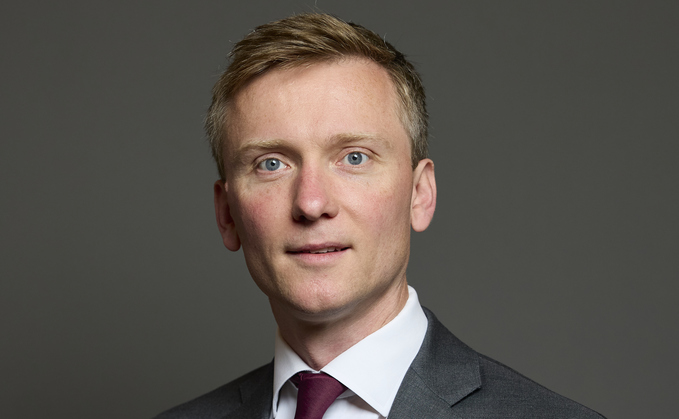
Torsten Bell: It is fundamental that trustees and sponsoring employers are supported in their choice to either run-on or secure their liabilities, while always protecting member interests Photo: © House of Commons/Roger Harris (CC BY 3.0)
The government has set out its plans to lift restrictions on how scheme surpluses are used – pledging to introduce a statutory override and base surplus extraction around low-dependency targets.
In its response to its Options for Defined Benefit Schemes consultation the government said it would introduce a statutory resolution power for trustees of schemes to modify their scheme rules. Use of this power will be at the discretion of the trustees, who remain best placed to make decisions in the context of their individual scheme circumstances and their duties to scheme beneficiaries.
The government said it was also "minded" to amend the threshold at which trustees were entitled to share surplus with the sponsoring employer from the current buyout threshold to a threshold set at full funding on the low dependency funding basis. It said further detail would be set out in draft regulations, on which it will consult.
The response said extraction of surplus would remain subject to trustee discretion and actuarial certification – a move it noted would bring additional scheme surplus into scope for extraction, while maintaining a sufficiently prudent approach.
The government said it would also amend section 37 of the Pensions Act 1995 to clarify that trustees must act in accordance with their overarching duties to scheme beneficiaries, which will remain unchanged.
It noted there was currently a "lack of clarity" as to whether the requirement in section 37 that trustees be satisfied that surplus extraction is in the interests of members, is additional to trustees' underlying duties to scheme beneficiaries, which safeguards member interests across all decisions.
It said the rate of taxation applicable to surplus extracted from DB schemes will remain at 25% but added it was continuing to consider the wider tax regime for surplus extraction.
The Department for Work and Pensions (DWP) also said it would work with The Pensions Regulator to develop guidance with respect to DB surplus extraction – reflecting feedback that guidance is required in this area to facilitate trustee comfort with extraction.
Despite this, the DWP said it was not proposing to introduce an opt-in 100% PPF underpin – saying it did not consider this was appropriate due to "the high cost and moral hazard concerns" and adding it did not think the underpin was necessary to encourage schemes to extract surplus.
The DWP said it was continuing to explore what role a government consolidator could play – noting that, while commercial buyout providers will offer a solution for many DB schemes, this may not work for every scheme.
It said: "We are continuing to consider how a consolidator could be additive to complement rather than compete with existing options in the DB market. We will further consider the possible role for a consolidator, taking the time to monitor and understand the impacts from current market changes. We will not be legislating for the consolidator in the forthcoming Pension Schemes Bill."
Introducing the government's response, pensions minister Torsten Bell said: "As DB schemes mature, it is fundamental that trustees and sponsoring employers are supported in their choice to either run-on or secure their liabilities, while always protecting member interests. This is why we have explored the creation of a government consolidator to serve DB pension schemes.
"Regulatory barriers can also inhibit the potential for surplus trapped in pension schemes to be invested in smarter ways and benefit members. We will unblock these barriers. Increased surplus flexibilities, with appropriate safeguards, will allow more well-funded DB schemes to release resources back to businesses and scheme members. This will be where trustees agree it is safe to share a surplus."
The move comes after prime minister Keir Starmer and chancellor Rachel Reeves confirmed the government would lift restrictions on DB scheme surpluses earlier this year – a move the government said would allow trapped surplus funds to be invested into the wider UK economy, or given to scheme members as additional benefits.









